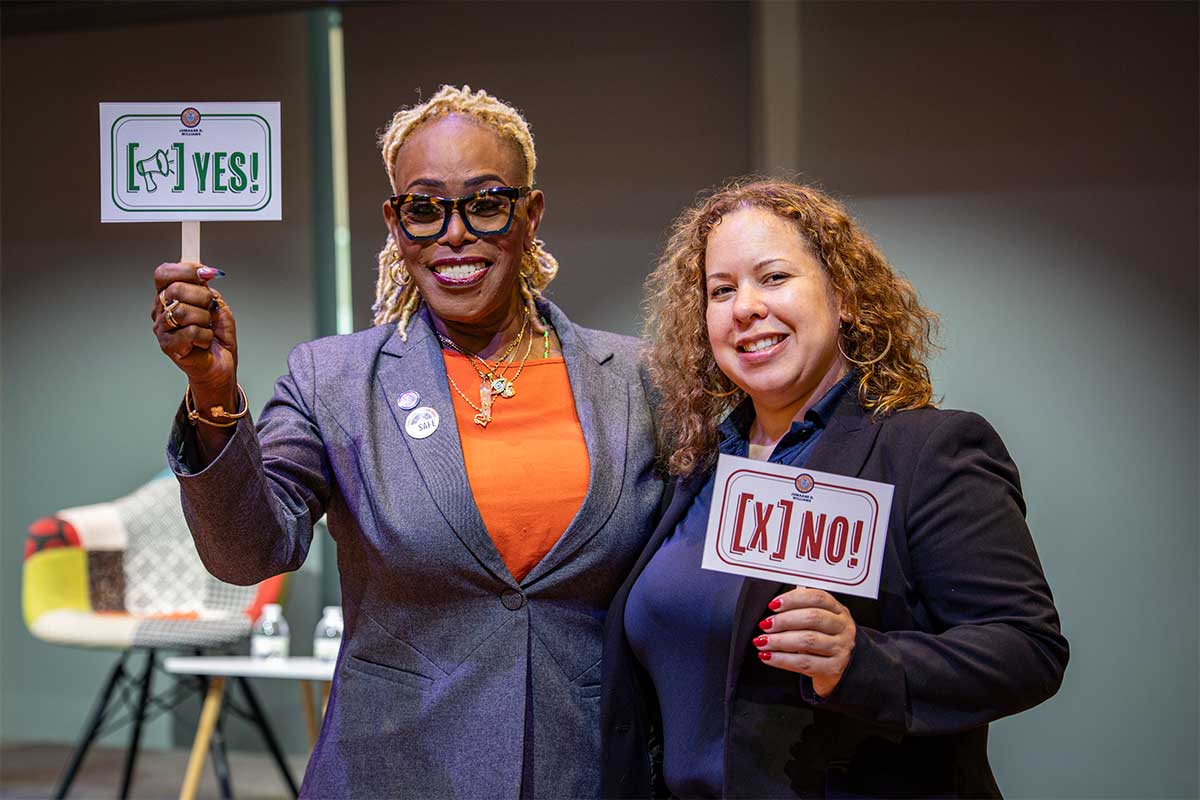Ahead of Election Day tomorrow, I want to remind New Yorkers to flip their ballots and vote on the six ballot proposals. These are challenging but crucial issues, and just as we have a civic responsibility to make our voices heard as voters, I feel a responsibility as a current city official to share my stances on these questions before going into the voting booth.
Proposal One
On proposal one, I am voting to support the effort – to allow improvements to the Olympic complex in the Adirondack Park while preserving more acres of this forest land for the future.
Proposals Two, Three, and Four
Proposals two through four have understandably been the most contentious, and understandably so – housing affordability and availability are among the top issues facing our city, and broken systems are partially responsible. However, even as the problems are immense and urgent, and the ideas at the core of these questions are strong, the language of some of the proposed solutions from this mayor’s commission is flawed.
The second proposal is designed to accelerate the timeline for producing publicly-financed affordable housing, a good goal, and to do the same for other affordable projects in neighborhoods that have not carried their fair share of new affordable housing. This thankfully includes both rental and ownership, and includes consideration of neighborhood character in the approval process. I have several concerns about the second portion of this measure, including that the standard of affordability is set on the city’s Mandatory Inclusionary Housing program, an inadequate metric that has in the past failed to deliver on its promise.
If we are serious about truly affordable housing, we need to set a higher standard for lowering cost – at the same time, that seriousness also demands action. With reservations, and with significant work ahead to address the concerns that I and others have through implementation, I will be voting yes on this second question.
Proposal three is a good idea poorly executed – simplifying the review process for some projects is a good idea; diminishing the City Council’s role to this extent is not. Additionally, making the review periods concurrent for Community Boards and Borough Presidents sounds like a good idea for expediting housing, but means those reviews cannot reflect each other’s findings – it could have been more effective to shorten these timelines than to overlap them. And finally, most notably, the phrasing of “modest” projects could serve as a loophole for developers – and we have seen again and again that developers will exploit any loophole for profit. With these concurrent timelines and without more direct clarity on “modest” proposals, I cannot support the specific language of this proposal.
Member deference, the practice by which an individual Council Member can essentially block or approve any projects in their districts, has been a major obstacle to essential projects over the years. While it is true that the local members know their communities best, making some deference an important part of the process, I’ve called for limits on this practice for over a decade, including when I ran for Council speaker. The solution laid out in proposal four, though, only shifts this decision from one individual to a three-person review panel of the mayor, speaker, and borough president – with two representatives on the panel presumably positioning themselves on opposite sides of the vote, this new panel would essentially still come down to the opinion of a single person. Overruling the entire Council’s votes on land use should have a higher standard – I suggest(ed) a five person panel including the Public Advocate and Comptroller – but the proposal as designed could be nearly as problematic as member deference itself, and I will vote against it.
Proposal Five
On proposal five, while there are issues with reducing the autonomy of Borough Presidents, I believe that digitizing and updating one unified City Map is a streamlined, accessible way to improve efficiency on land use processes, and I along with multiple impacted Borough Presidents will support it.
Proposal Six
Proposal six has the potential to completely reshape elections in our city by aligning city elections with federal years. There are a number of benefits to this model, most strikingly that it has the potential to dramatically increase voter turnout for local races. While I initially feared the potential for ballot fatigue or a minimizing of municipal candidates, similar shifts in other major cities have avoided these pitfalls and seen great success. Passing this measure will create challenges and increase risk for elected officials like myself, but it will undoubtedly benefit the voting public. Greater participation in our democracy is always a goal, especially in my role, and I will vote for the proposal in that hope.
In our city tomorrow, we have the opportunity not only to elect leadership, but to directly impact city policies for decades. I urge every eligible New Yorker to cast their ballot, and before they do, to flip it.
